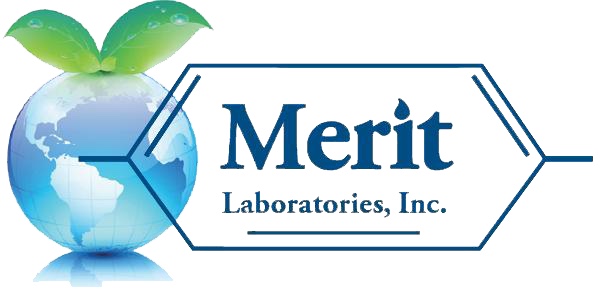Many of the longer chain carbon compounds analyzed as part of PFAS testing have long chemical names and can be tricky to differentiate. At Merit Laboratories, we’re always working to find ways to make it easy for our clients. To help you out, here’s a list of acronyms used for commonly-analyzed polyfluoroalkyl substances (PFAS).
The Number of PFAS Sites in Michigan Grows
The number of sites with PFAS contamination in Michigan continues to grow. The MDEQ has compiled a listing of these PFAS sites along with a map that have been identified as having PFAS levels that are potentially impacting human health and the environment . The sites, which are found at locations throughout Michigan, include:
Merit Laboratories Delivers PFAS Technical Presentation for the Michigan Manufacturers Association
Maya Murshak, CEO of Merit Laboratories, delivered a technical presentation to the Michigan Manufacturing Association about Perfluorocarbons (PFCs). PFCs are commonly known as Per- and Polyfluoroalkyl Substances (PFAS). The presentation was held on May 8th in Lansing for members of the MMA Environmental Policy Committee and PFAS Workgroup.
The Differences between EPA 537, 537 Modified, and ASTM D7979
MDEQ Releases Minimum PFAS Analyte List for Industrial Pretreatment Program (IPP) Initiative. Spoiler Alert: Merit Labs analyzes for all of them.
The MDEQ recently released the list of PFAS compounds that should be analyzed as part of the Industrial Pretreatment Program. The list, considered a minimum list of PFAS compounds, was created by the MDEQ based upon the potential for these analytes to be present in Michigan, the availability of the chemical standards for laboratory testing, and ability of laboratories to perform the testing.
Merit Laboratories performs testing for all of the PFAS compounds listed in the MDEQ IPP PFAS directive. The list of IPP PFAS compounds includes:
Merit Laboratories is Michigan’s PFAS Laboratory
Merit Laboratories is Michigan’s environmental laboratory for PFAS analytical testing. Merit offers two analytical options for PFAS: EPA 537 and ASTM D7979. Merit Laboratories performs EPA 537 in drinking water for the list of 14 PFAS substances that are EPA-approved by the method. EPA 537 is a prescriptive Drinking Water Method for 14 PFCs. We also perform ASTM D7979, which is a method for non-drinking water matrices. Merit Laboratories can analyze for the MDEQ PFAS requested list of 24 PFAS substances using ASTM D7979.
24-Hour TAT Support for the Northern California Wildfire Cleanup Program
Last October, wildfires ravaged Northern California covering a 245,000-acre path of destruction over a 24-day period. When the last fire was finally extinguished, nearly 9,000 homes and buildings were destroyed with total damages exceeding $12-billion as a result of the wildfires. Quickly, the U.S. Army Corps of Engineers went to work to begin a cleanup program that continued through March 2018.
As part of the USACE cleanup program, Merit Laboratories performed analytical laboratory testing on more than 4,000 soil samples over multiple sample collection events that lasted several months. All soil samples analyzed by Merit Laboratories were completed following an expedited 24-hour turnaround time (TAT) for heavy metals.
Turning Students into Environmental Stewards: Flint River GREEN Program Support
For over 20 years, Merit Laboratories has been a proud supporter of the Flint River Global Rivers Environmental Education Network (GREEN) through a partnership with General Motors. Merit donates laboratory testing services and sampling supplies for students to annually test local streams and rivers.
Michigan’s PFAS Industrial Pretreatment Program Initiative on the Fast Track
The presence of PFAS at sites throughout Michigan have prompted the Michigan Department of Environmental Quality (MDEQ) to require Wastewater Treatment Plants (WWTP) with an Industrial Pretreatment Program (IPP) to address this emerging contaminant. In a letter to WWTPs dated February 20, 2018, the MDEQ is requiring several actions be taken to ensure that all IPPs are prohibiting discharges of PFOS and PFOA. By June 20, 2018, the MDEQ is requiring WWTPs with an IPP to complete the following:










